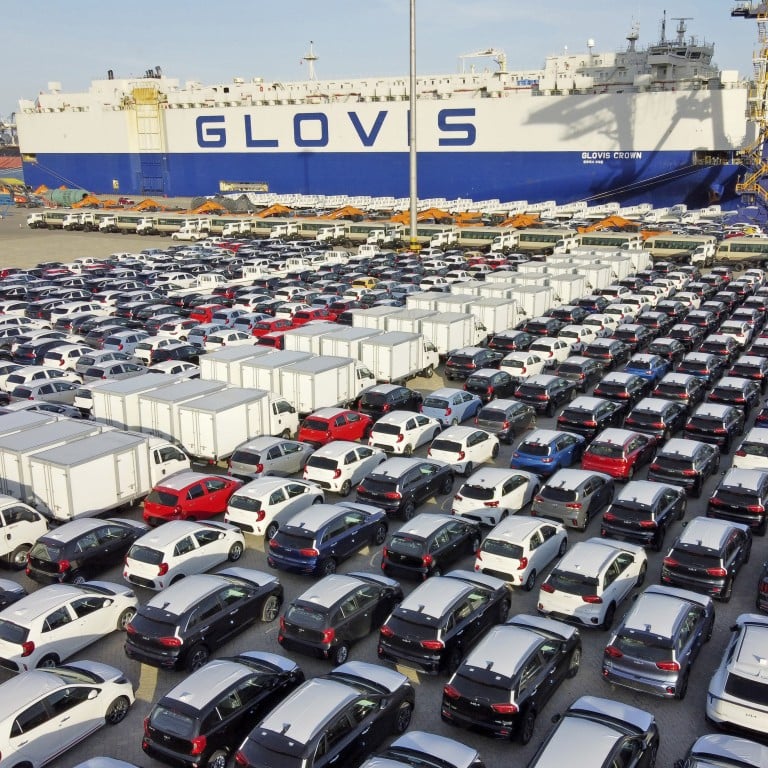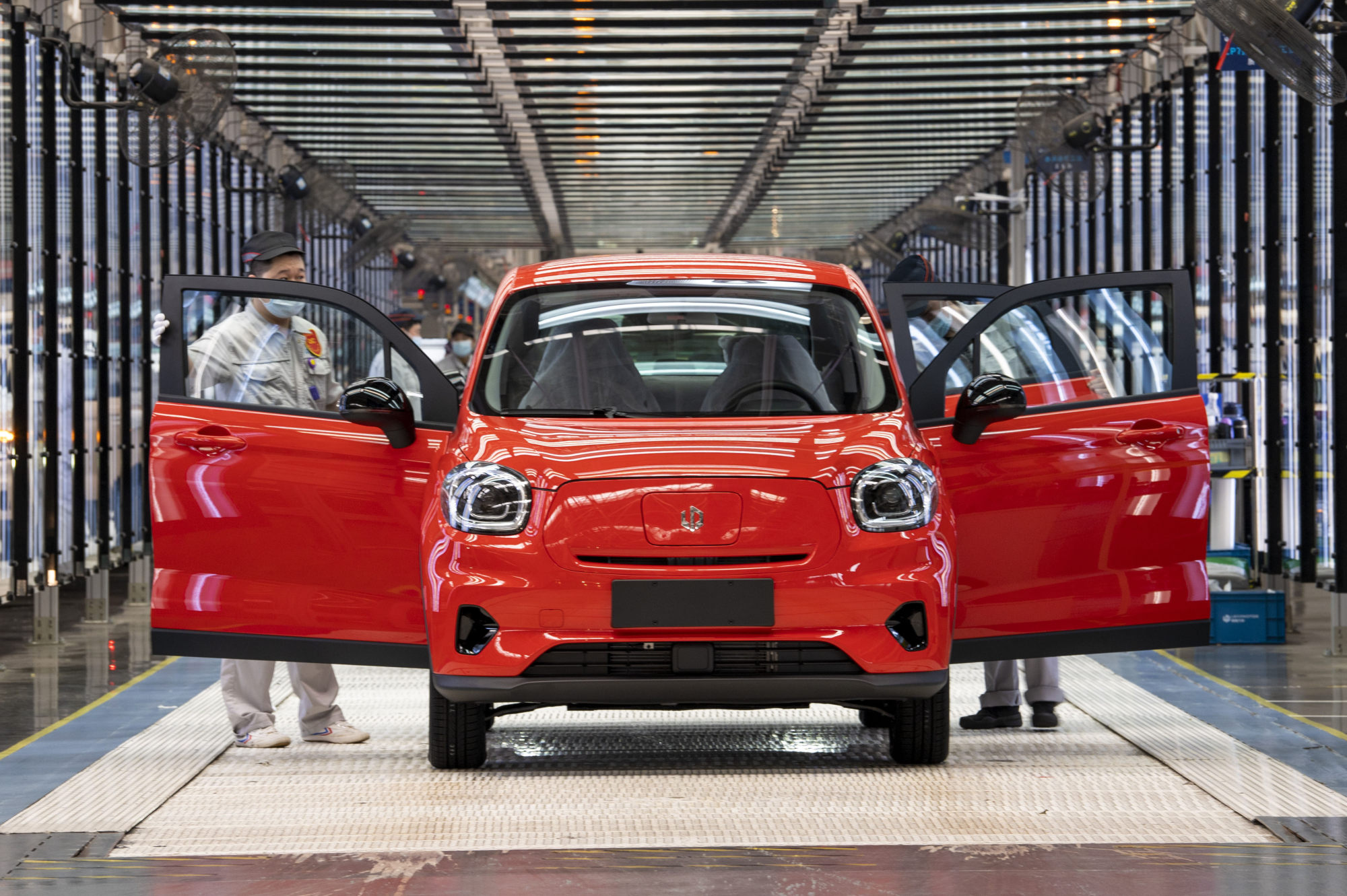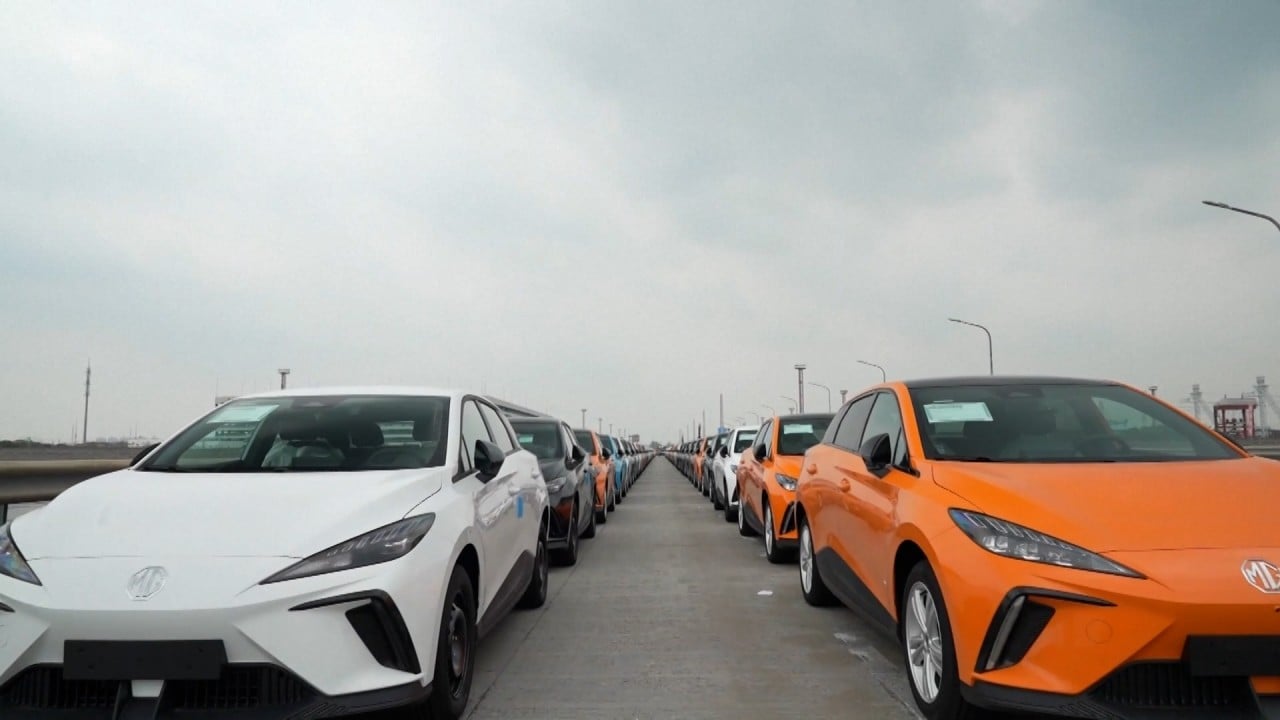
EV makers put China on course to overtake Japan as the world’s top car exporter
- The growing manufacturing and technological prowess of China’s domestic EV makers could soon see the nation displace Japan as the world’s top car exporter
- China exported 3.11 million vehicles in 2022, up 54.4 per cent year on year, according to the China Association of Automobile Manufacturers
China is now the world’s second-largest vehicle exporter after overtaking Germany last year. It shipped 3.11 million units overseas in 2022, comprising 2.53 million cars and 580,000 commercial vehicles, an increase of 54.4 per cent from 2021, according to the China Association of Automobile Manufacturers (CAAM).
China is closing in on Japan’s export volume, which recorded flat overseas car sales last year.

Japanese carmakers shipped 3.2 million vehicles abroad in the first 11 months of 2022, almost unchanged from a year earlier, according to MarkLines, a car industry data provider. In 2021, Japan exported 3.82 million cars, and it is expected to post a year-on-year decline once the full-year results are tallied.
Citic Securities forecast in a research report last month that China’s car exports could hit 5.5 million units in 2030, of which 2.5 million would be EVs.
China’s EV market to see slower growth as consumers hold off on big-ticket items
For China, the world’s second-largest economy that was ravaged by Beijing’s zero-Covid strategy last year, a lot of hope was pinned by government officials on the EV industry, one of the few bright spots, to shore up economic data.
Amid slowing domestic sales in the latter half of 2022, exports gave a much-needed boost to the auto industry that provides one in every six jobs to the country’s workforce of 870 million people.
“Exports are a growth engine, as China’s share of the global auto market continues to rise,” Beijing-based research firm Gavekal Dragonomics said in a report earlier this month. “The country’s prowess in EVs in particular has propelled sales in markets such as Europe, which now account for about a quarter of total auto exports.”
William Li, CEO of Nio, said the Shanghai-based start-up’s EVs, which feature sophisticated in-car entertainment systems and autonomous driving technology, will help it strike a chord with customers in Europe and North America and drive export volumes by 2027.
“We are planting the seeds to chase new growth opportunities outside China,” he said at a media briefing on December 25. “Nio does not aim to be a copycat. Instead, we want to carve out a reputation in the international market.”
Since the early 1980s, China’s car market has been dominated by foreign brands as their mainland ventures churned out millions of vehicles every year to take a lion’s share of the world’s largest automotive market.
In the first 11 months of 2022, foreign car brands still accounted for 50.8 per cent of the market, according to data from CAAM.
However, it is a very different story in the EV segment, where Chinese brands enjoyed an 84.7 per cent share in the same period.
Exports of pre-owned vehicles are also likely to increase as authorities ease rules to dispose off these cars as millions of Chinese drivers look to replace their old petrol cars with EVs.
The Ministry of Commerce said it would simplify vehicle transaction process and streamline customs clearance procedures to facilitate exports of second-hand cars. In December, 14 more provincial-level regions, including Liaoning, Fujian and Sichuan, were allowed to export used cars, taking the total to 24 regions.
“As the Chinese domestic auto market keeps growing, so will the number of old vehicles,” said Zhao Xijun, associate dean of the School of Finance at Renmin University in Beijing.
“In the past they would be sold in the cities and taken into the countryside because the rural areas were less developed. Now, as the countryside keeps developing, there is less interest, so used cars are instead shipped offshore to developing countries.”
Additional reporting by Ralph Jennings



